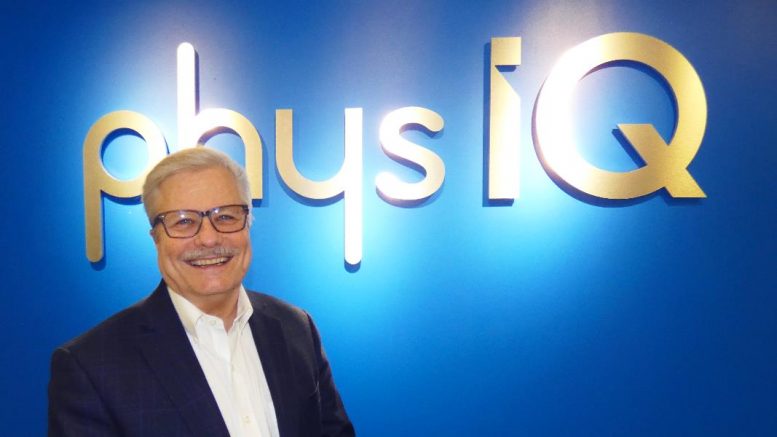A Purdue University–affiliated company using artificial intelligence to improve health care delivery has received a $500,000 investment from Purdue Research Foundation’s Foundry Investment Fund to help them advance medical technology.
physIQ, founded by Gary Conkright, an alumnus of Purdue’s College of Engineering, develops solutions to improve healthcare outcomes by applying AI to real-time physiological data from wearable sensors. The physIQ solution provides health care specialists with tools to proactively engage at-risk patients, as well as to provide pharmaceutical companies with powerful data-driven support to demonstrate the efficacy of their products using Real World Data.
“This investment is an incredible show of support and confidence in our technology and our vision from the Purdue Research Foundation,” Conkright said. “The Foundation’s support will help us continue to lead the way in changing how healthcare is developed and delivered through FDA-cleared physiology analytics.”
The Foundry Investment Fund was established in 2014 through a partnership between Purdue Research Foundation and Cook Medical. The goal of the fund is to add critical capital for the transition from the discovery of a promising technology to founding a viable life sciences company. The funds are partial matching investments made in the companies by institutional and other investors.
“The Foundry Investment Fund plays an important role in attracting interest in Purdue-affiliated life sciences companies,” said John Hanak, managing director of Purdue Ventures. “Gary Conkright’s team at physIQ offers a great example of the kinds of technology and products that align perfectly with the goals of the fund.” The Foundry Investment Fund has invested nearly $5 million to 13 companies in the past five years. Those companies have secured capital from venture funds and other institutional and professional investment sources.
PhysIQ is looking forward to further ties with Purdue’s Weldon School of Biomedical Engineering. Together, they are exploring collaboration opportunities with signal processing and AI-based data analysis from wearable biosensors, as well as data analysis from multiple-axis accelerometers.
“Among the many exciting reasons about this collaboration is that it facilitates a closer alignment with some of Purdue’s experts,” said Conkright. “One specific example is the direct collaboration with the school of biomedical engineering, which will accelerate physIQ’s work in areas in which they excel. In tandem, we are providing real-world use cases to the school’s research efforts.”

